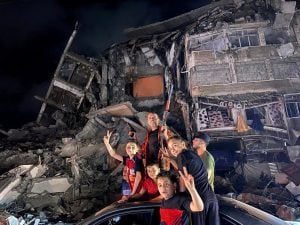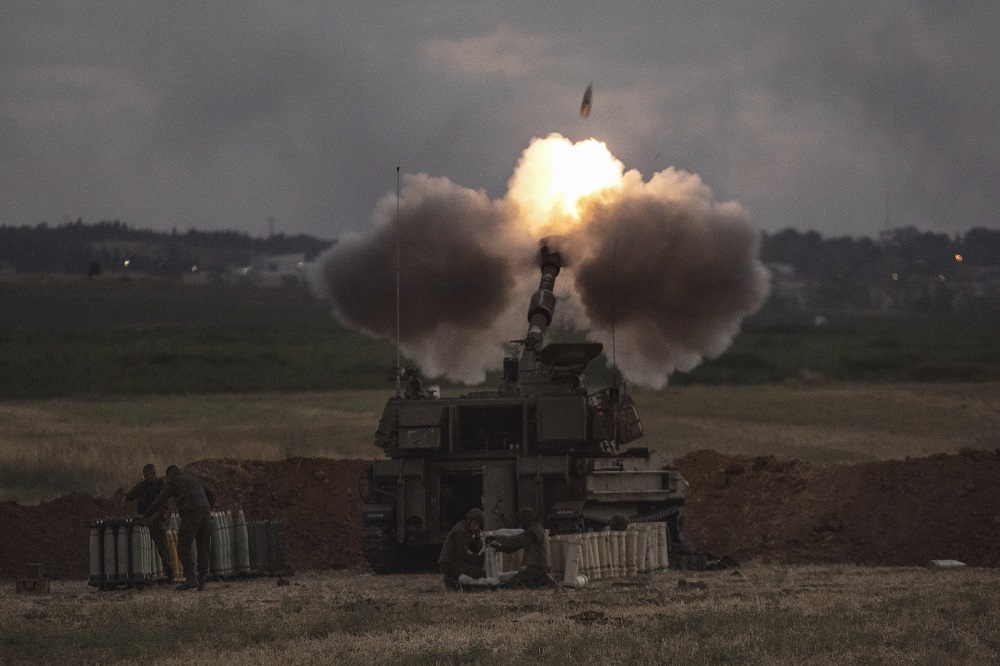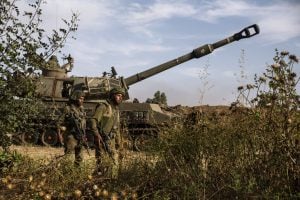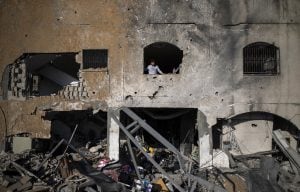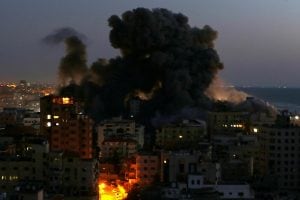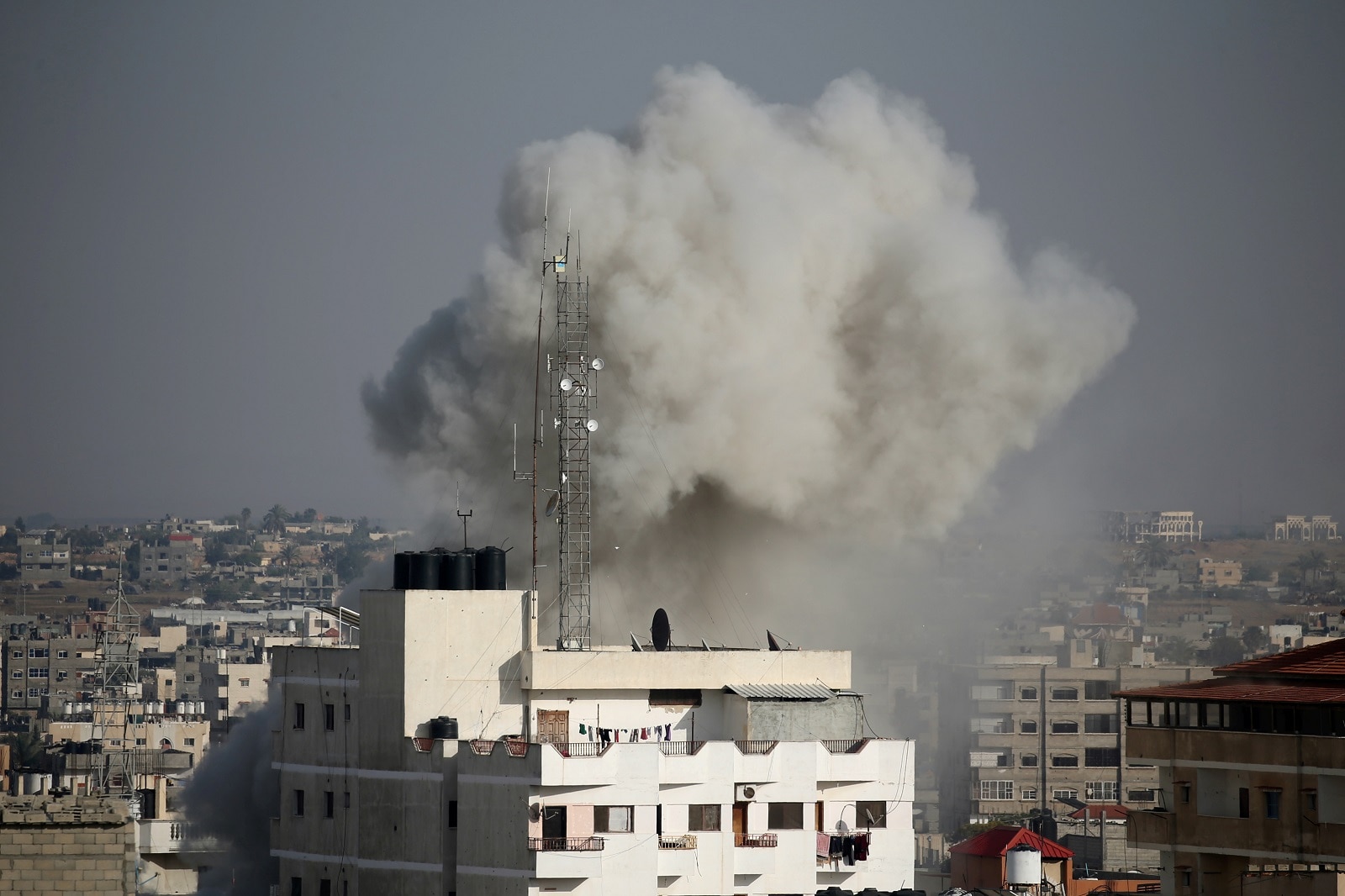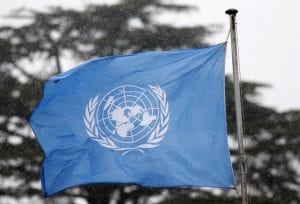Déjà Vu in the Middle East
Summary
The ongoing conflict is also a proxy war between Israel and Iran.
Middle East is back and it’s back in a way it usually does—a crisis between Israel and the Palestinians. The latest flare-up of violence in Gaza is the worst since 2014 and even after entering its second week, it shows little sign of easing. Though US President Joe Biden has finally joined calls for a ceasefire between Israel and Palestinian militants, the conflict has only been on an escalatory mode. This crisis started after weeks of rising Israeli-Palestinian tension in East Jerusalem that culminated in clashes at a holy site revered by both Muslims and Jews. After warning Israel to withdraw from the site, Hamas began firing rockets at Israel leading to retaliatory airstrikes.
As part of its operation “Guardian of the Walls,” Israel has struck more than 800 different targets while Hamas and Islamic Jihad militants have fired more than 3200 rockets. The narratives from the two sides diverge considerably as is to be expected. The Israel Defense Forces (IDF) has suggested that at least 130 of the close to 200 Palestinians killed so far have been combatants and the Palestinian health ministry, which in Gaza is controlled by Hamas, argues that almost 100 of the dead are women and children conveniently ignoring the deaths of militants. The IDF holds Hamas responsible for the deaths of civilians given its penchant for using ordinary civilians as human shields and exploiting it to its military advantage.
Given the structural challenge that Israel faces in tackling militants from Gaza, the IDF’s objectives are quite clear—establishing deterrence vis-a-vis Hamas by inflicting high enough costs so that it can have a sobering effect on Hamas behaviour in the future. While many would see in Israel’s response the use of disproportionate force, for IDF the challenge is to ensure that a non-state actor like Hamas working in tandem with some state actors gets the message that Israel has the wherewithal to respond to its provocations.
Yet, the costs for Israel this time around also include domestic challenges with riots between Israeli Arabs and Jews. Israel has also been receiving rocket fire from Lebanon and some other neighbouring territories, compounding its problems as the challenge emerges of the widening of this conflict. The Israeli Air Force has shot down an unmanned aerial vehicle that approached its border from Jordan. Track live updates on the Israel-Palestine conflict here
But the biggest challenge continues to be the management of international public opinion. As the crisis continues, Israel will come under pressure to de-escalate. After giving Israel a few days to sort the conflict out militarily, US President Joe Biden has begun to voice his support for a ceasefire, telling Israeli PM Benjamin Netanyahu that the US is working with Egypt and other nations on stopping the violence. At the UN Security Council, however, the US continues to block the Security Council statement calling for a cessation of violence.
Washington continues to emphasise that “having those conversations behind the scenes… is the most constructive approach we [the US] can take.” There has always been a pattern in the US response to Israeli actions. It tends to shield Israel from global censure to ensure that Israel achieves its military objectives but as the civilian casualties mount, it brings to bear its pressure on Israel to come to terms with the cessation of the conflict.
America’s backing is the most important variable that Israel has to factor in its response. And while Biden has been trying to shift gradually from some of the most extreme positions taken by his predecessor when it comes to the Israel-Palestine issue, there is more continuity than change. In fact, the Biden administration has approved the potential sale of $735 million worth of precision-guided weapons to Israel earlier this week. Yet in the wider context of the Middle East, things are evolving rapidly with Biden trying to revive the JCPOA with Iran despite Israeli objections.
ALSO READ | In pics: From Fauda to The Spy, here are 5 movies and TV shows worth watching on Israel-Palestine conflict
More importantly, ever since the days of the Obama Administration, Washington has been making it clear that the Middle East is declining in the list of its strategic priorities. China’s rise and the growing focus on the Indo-Pacific is the real issue for the US. And Israel has worked diplomatically to build its ties with Arab players over the last few years. While public opinion in most Arab nations may have an anti-Israeli orientation, the Arab governments are reasonably well disposed to Israel. There is broader fatigue with the Palestinian issue in the Arab world and this vacuum has been filled by Iran and Turkey. The ongoing conflict is also a proxy war between Israel and Iran.
Even as these global realities exacerbate tensions, domestic political realities in Israel have also played a major role. Netanyahu was struggling to form a government before this crisis. Now he is once again in a position to rally the nation around his leadership. On the other hand, Hamas had been angered by the decision of President Mahmoud Abbas to call off planned elections. This crisis allows it to stoke Palestinian discontent with Abbas which in any case has enhanced the acceptability of Hamas among Palestinians over the years.
There is no real incentive for either side to back down without achieving some of their political objectives. The only player with some real leverage remains the US. And so the world waits for Washington’s entry into this maelstrom. Once that happens, we can expect some kind of de-escalation to happen pretty fast. But the underlying realities that have spawned this latest round of violence will remain where they are. The Israeli-Palestinian conflict will go off the headiness for a while till another spasm of violence makes it impossible for the world to look the other way.
— Professor Harsh V Pant is Director, Studies and Head of the Strategic Studies Programme at Observer Research Foundation, New Delhi and Professor of International Relations at King’s College, London. The views expressed in the article are his own

Elon Musk forms several ‘X Holdings’ companies to fund potential Twitter buyout
3 Mins Read
Thursday’s filing dispelled some doubts, though Musk still has work to do. He and his advisers will spend the coming days vetting potential investors for the equity portion of his offer, according to people familiar with the matter


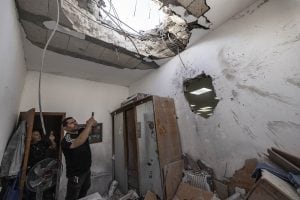






 Listen to the Article
Listen to the Article  Daily Newsletter
Daily Newsletter





